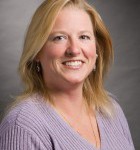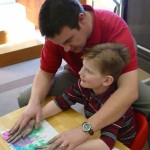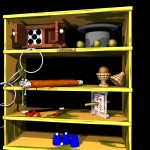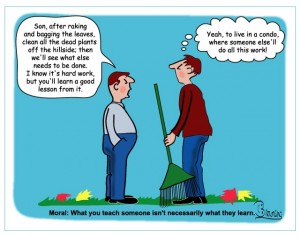Author: Frank LaBanca, Ed.D.
 Dr. Lisa Kaplan will be hosting our next videoconference on Wednesday. Dr. Kaplan and I have collaborated together in the past, and she was actually interviewed by previous students in 2005. Read about it here. Please prepare questions for Dr. Kaplan. Her presentation will deal with careers in biotechnology and toxicology.
Dr. Lisa Kaplan will be hosting our next videoconference on Wednesday. Dr. Kaplan and I have collaborated together in the past, and she was actually interviewed by previous students in 2005. Read about it here. Please prepare questions for Dr. Kaplan. Her presentation will deal with careers in biotechnology and toxicology.
Tags: 2009, interview, videoconference
Posted in Uncategorized | |
Author: Frank LaBanca, Ed.D.
 Please comment in 100-200 proofed, succinct words about the occupational therapy videoconference. What did you like? What needs improvement? What have you learned?
Please comment in 100-200 proofed, succinct words about the occupational therapy videoconference. What did you like? What needs improvement? What have you learned?
Tags: videoconference
Posted in Uncategorized | |
Author: Frank LaBanca, Ed.D.
 Tara Glennon will present our next videoconference, complete with props. Please review her (short) biography and submit two questions to ask her during her presentation.
Tara Glennon will present our next videoconference, complete with props. Please review her (short) biography and submit two questions to ask her during her presentation.
Tara Glennon is a Quinnipiac graduate (1985) and has been a pediatric therapist for almost 25 years. She owns the Center for Pediatric Therapy with two offices in CT (Fairfield and Wallingford) and is also a professor in Quinnipiac’s OT department. She publishes regularly and presents nationally on pediatric occupational therapy practice.
Posted in Uncategorized | |
Author: Frank LaBanca, Ed.D.
Please debrief the videoconference today in 100-200 proofed succinct words. Amanda – select a career in the health professions, go to http://www.bls.gov and give us some info about it.
Posted in Uncategorized | |
Author: Frank LaBanca, Ed.D.
Using the information below as well as your own interests and further research, compose appropriate, relevant questions to ask Ms. Christie when she “visits” us on April 1st. Questions should be conceptual, in-depth, and original (do not repeat other students’ questions). Post them here so we can share our ideas and thoughts.
Her Bio:
Cynthia L. Christie is the Assistant Dean for Career Services in the School of Health Sciences at Quinnipiac University in Hamden, Connecticut. Ms. Christie is a Licensed Professional Counselor by the State of CT. and a Nationally Certified Counselor by the National Board for Certified Counselors. After receiving her Bachelor of Arts degree at Providence College in Rhode Island, she continued her education to achieve a Master of Science degree in Counseling with an emphasis in Student Development in Higher Education from Southern Connecticut State University in New Haven, CT.
Ms. Christie’s professional experience includes both non-profit and academic positions. She has been a vocational rehabilitation counselor, supported education counselor and manager of psychosocial rehabilitation services, serving the psychiatric population at a large non-profit community service organization in Fairfield County.
Her professional experience in higher education includes positions at Fairfield University as an academic advisor and career counselor; at the Yale University School of Public Health as assistant director of career services; and currently at Quinnipiac University as assistant dean for career services, since 2007.
Ms. Christie is an active member of the Connecticut Counseling Association, the Connecticut Career Counseling & Development Association, and the National Association of Colleges and Employers. She represents Quinnipiac University Career Services through the CT. Conference of Independent Colleges, CT. Cooperative Education & Internship Association, Hartford Springfield Economic Partnership, and the CT. Area Health Education Center Advisory Committee.
Post by Tuesday, March 30
Posted in Uncategorized | |
Author: Frank LaBanca, Ed.D.
Experiences at science symposia and fairs not only teach us a great deal about how much we know about our projects, but they also teach us about life and ourselves. Reflect on your learning, both as a science student, and an individual.

Posted in Uncategorized | |
Author: Frank LaBanca, Ed.D.
The Conneticut JSHS allows students to experience the research of other students. In 100-200 proofed, succinct words, please comment on your learning.
Posted in Uncategorized | |
Author: Frank LaBanca, Ed.D.
 Please post an abstract of your work-to-date for inclusion in our Symposium program. 200-300, typed, proofed words.
Please post an abstract of your work-to-date for inclusion in our Symposium program. 200-300, typed, proofed words.
Posted in Uncategorized | |
Author: Frank LaBanca, Ed.D.

Post a biography here for our symposium program book. Please note: I will NOT correct spelling errors – be sure to edit your work. Samples below:
Alex Albritton is a junior at Newtown High School. His passions in life are science reading and swimming. Alex’s favorite subject in science is biology and he is especially interested in viruses. He is currently working of a project involving bacteriophages. His love of reading is what actually led him to his interest in biology and viruses. He became interested in viruses when he read an extremely interesting book called the Hot Zone by Richard Preston. This book painted a very real and terrifying image about some of the most dangerous viruses in the world. Alex also enjoys swimming and is on the Newton High Schools boy’s swim team.
Maricate Conlon is a junior at Newtown High School. She joined the applied science research course to further her interests in environmental and biological sciences. She competitively swims year-round and is a part of the girls’ varsity swim team. She is also involved in clubs at school; she is a member of the Guidance Honors Association and is her student class council secretary. In the future, she plans to pursue a degree in biological or environmental areas of study.
Drew Taylor is a junior at Newtown High School. He plays on the varsity soccer and golf team. He works at Rock Ridge Country Club as well as Southington Mountain as a snowboard instructor. He took Applied Science research to further his interests in ecology and the Long Island Sound. Drew is also Vice President of student council and a member of SADD, Students Against Destructive Decisions. He is presently looking to apply to the Air Force Academy, where he wants to become a pilot.
Ivan Virovets is a sophomore at NHS. He joined Applied Research class due to his interest in physical and biological sciences, which started many years ago, at least the physical part, when he discovered plans for a tesla coil on the Internet and built one. From then on he loved high voltage, and then with the high school science program, also developed an interest in microbiology.
Tags: biography, symposium
Posted in Uncategorized | |
Author: Frank LaBanca, Ed.D.
 Dr. Blake is a computer science professor at Quinnipiac University. His bio is as follows:
Dr. Blake is a computer science professor at Quinnipiac University. His bio is as follows:
I grew up in Maine and went to Princeton as an undergrad where I earned a BSE (Bachelor of Science in Engineering) in Electrical Engineering and Computer Science. I earned a Masters and Ph.D. In Computer Science from Northwestern University where my research concentration was Computation Linguistics (a sub-field of Artificial Intelligence). I was a member of the faculty at Tennessee Technological University for a few years, and then decided to switch my research focus. I was a post-doc at the University of California, San Francisco in a Computational Biology lab, funded by among others the Sloan Foundation and the DOE. I came to Quinnipiac in 2000 to start/chair the CSC program.
In 100-200 proofed succinct words, indicate what you’ve learned from his presentation and what was interesting about it. Be sure to incorporate comments from previous posts and respectfully agree or disagree with your peers.
Posted in Uncategorized | |
 Dr. Lisa Kaplan will be hosting our next videoconference on Wednesday. Dr. Kaplan and I have collaborated together in the past, and she was actually interviewed by previous students in 2005. Read about it here. Please prepare questions for Dr. Kaplan. Her presentation will deal with careers in biotechnology and toxicology.
Dr. Lisa Kaplan will be hosting our next videoconference on Wednesday. Dr. Kaplan and I have collaborated together in the past, and she was actually interviewed by previous students in 2005. Read about it here. Please prepare questions for Dr. Kaplan. Her presentation will deal with careers in biotechnology and toxicology.




